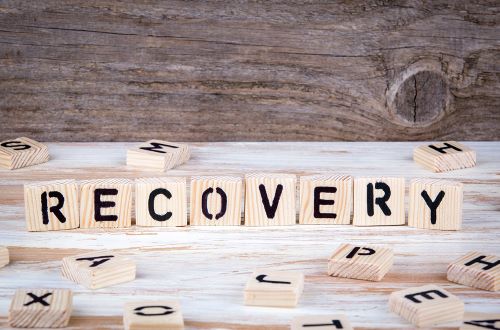

Have you ever considered treatment and therapy to beat up your addiction? The power lies inside of you. Overcoming an addiction is difficult, and dealing with it alone can be tough. Imagine being able to control your impulses, manage anxiety, and start fresh in your life by means of mental strength. One may aid with this via awareness-raising and meditation. All of these activities go beyond simple means of relaxation. They may also assist in really potent healing. In what ways could awareness-raising and meditation support those seeking recovery? If that’s your question, read on to get answers!
What Does Mindfulness Actually Mean?
You must concentrate on the present moment to be conscious. Understanding your feelings, ideas, and bodily responses is one aspect of it. Isolating yourself from the negative thought patterns linked to addiction requires you to focus primarily on the here and now. Awareness makes the shift easier, allowing you to regulate your impulses and fears and go from just going with the flow to more purposeful action.
How can you cool off?
When you meditate, it helps you to educate your mind to be peaceful and conscious. Often it means to do nothing, sit quietly, concentrate on your breath, and let your ideas pass by free from attachment.
Though there are many techniques of meditation, they all seek to enable you to feel peaceful and in control. A good meditation session helps you become more self-aware, which is very beneficial in overcoming an addiction of all kinds.
What changes occur in the brain under awareness?
There is strong evidence that mindfulness affects neurons linked to addiction. When you practise regular mindfulness it helps the brain to produce more gray matter. This is particularly true when it comes to having self-control, making decisions, and managing your emotions. Being aware may alter the way your brain functions. It will make you develop healthier habits and help you regulate impulses.
How could meditation enable you to control your emotions?
You will notice managing your thoughts without drugs is one of the toughest challenges of overcoming an addiction. Meditation helps you better control your emotions and deal with them in a better way. Regular practice helps you to develop awareness of your emotions so that they never control your life.
Many who struggle with substance abuse learn the art of meditation in a luxury addiction treatment center where trained staff guide them through practices that promote inner calm and resilience. These skills become valuable tools for maintaining balance and preventing relapse long after treatment ends.
Dealing with stress and anxiety
Many times, stress and anxiety drive people into drugs and other addictions. You could feel less concerned if you learn to be more at ease and in the present. One may do this with mindfulness and meditation. Paying attention to your breath and releasing your racing ideas can guide you to become peaceful. This will help you to handle the challenging aspects of addictions.
Many have learned during sex addiction therapy how mindfulness techniques can reduce impulsive behavior and increase emotional awareness. These practices support healthier coping responses by helping individuals pause, reflect, and choose more constructive actions.
Growing more self-aware and kind to oneself
Ignorance about oneself or poor treatment of oneself could lead to addiction. Being conscious helps you become aware of your ideas and emotions. This guides you in determining the reason behind your drug addiction. It also makes you more self-accepting, which enables you to forget about your flaws and push forward with a positive attitude. Long-term recovery depends on knowing yourself and treating yourself kindly.
How can one pay closer attention and concentrate?
Awareness and meditation may help you improve your ability to concentrate and focus—qualities that will enable you to recover. You may remain focused in treatment, in a support group, or simply in regular life if you want to keep on target with your recovery objectives. Meditation helps you steer away from things that aren’t essential and recover more rapidly by teaching your mind to be present and focused.
Start with little tasks initially
Meditation and awareness-raising practices are somethings that are easy to do, you just need to be consistent. Start with easy activities like meditation or a few minutes daily to relax completely. For a minute in the morning or before bed, focus on your breath and thoughts. You may progressively lengthen and intensify your meditation sessions over time.
Consider the daily activities you engage in with a purpose
You need not be motionless to be aware. It might become something you do every day, from eating to walking to even dishwashing. You should be aware of what you hear, see, smell, and feel when you are doing anything. This will help you keep cool and in control all day, therefore reducing the likelihood of you slipping back.
Integrate into a mindfulness-based therapeutic approach
Mindfulness and meditation have been discovered by several treatment facilities—including those in Malibu—to assist persons dependent on narcotics recovery. They provide conventional therapy as well as mindfulness and meditation-oriented programs to assist individuals in improving. Under the direction of experienced instructors, these sessions teach and practice mindfulness techniques in a disciplined manner.
One should register for mindfulness and meditation courses
If you feel you need assistance, you might attend seminars on awareness and meditation. Usually, these teachings are available online, at community centers, or in rehab in Malibu facilities. They enable you to meet other individuals who are also becoming better and help you grow in what you do. Attending these seminars will make you learn more about awareness and meditation, therefore improving your condition.
Meditating helps you discover calm
Once dependent on pharmaceutical medicines, you constantly feel worried and stressed out. According to the doctor, meditation could help control your emotions. You will feel rather calm and concentrated for as long as you meditate daily. It will help you identify your triggers for anger and devise improved strategies for managing it. It will straighten your life and begin over.
How to Stay Calm?
Many individuals find it difficult to remain motionless while starting a meditation. Though it’s common to feel restless, remember that this is just a phase of the process. If you discover that you become anxious during shorter meditation sessions, start with those and add additional time gradually. Explore various types of meditation to find the one that suits you best.
Putting Things Alone
Staying with mindfulness and meditation may be challenging, just like with any other new habit. One easily misses a few lessons while one is busy. If you want to see most of them, however, you must stick to them. Set aside daily time to meditate and develop greater awareness to keep on target. Doing it every day will allow you to develop a habit.
Desiring Assistance
If you find yourself struggling to reach your awareness and meditation objectives, don’t be ashamed to seek support. This may be a group of meditators, a master of mindfulness, or an internet community. Getting help from others may keep you motivated and provide you with wise solutions for problems.
The ascent of mindfulness websites and apps
Nowadays, meditation and awareness-raising are simpler than they ever were. Lots of applications, online courses, and routines with advice for improvement abound. Those who want further aid on top of what they are currently doing will find these resources very beneficial.
Conclusion
Awareness and meditation can be very helpful on your path to recovery. Maintaining these practices can help you deal with stress, heal, and develop personally. You may benefit from mindfulness whether you visit a healthcare treatment center or practice it on your own. These tips will not only help you get better faster, but they will also improve your overall well-being. Recognize that progress takes time. By practicing meditation and raising your consciousness, you will be able to navigate this path with increased strength and efficiency.


